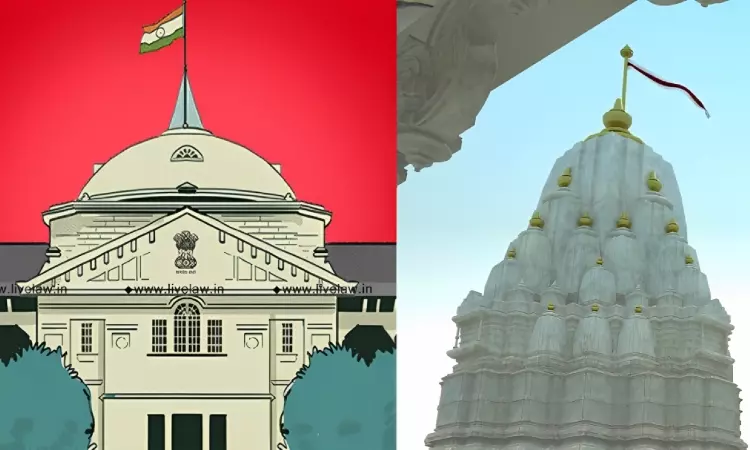Right To Construct A Temple On Private Property Protected U/Articles 25 & 26, It Can't Offend Religious Sensibilities Of Others: Allahabad HC
Sparsh Upadhyay
16 Aug 2023 7:00 PM IST

Next Story
16 Aug 2023 7:00 PM IST
The Allahabad High Court last week observed that the right to construct a Temple on private property is protected by Articles 25 and 26 of the Constitution and such construction cannot offend the religious sensibilities of any other community.The bench of Justice Salil Kumar Rai and Justice Surendra Singh-I also said that the mere fact that a Masjid exists nearby the plot on which the Temple...
